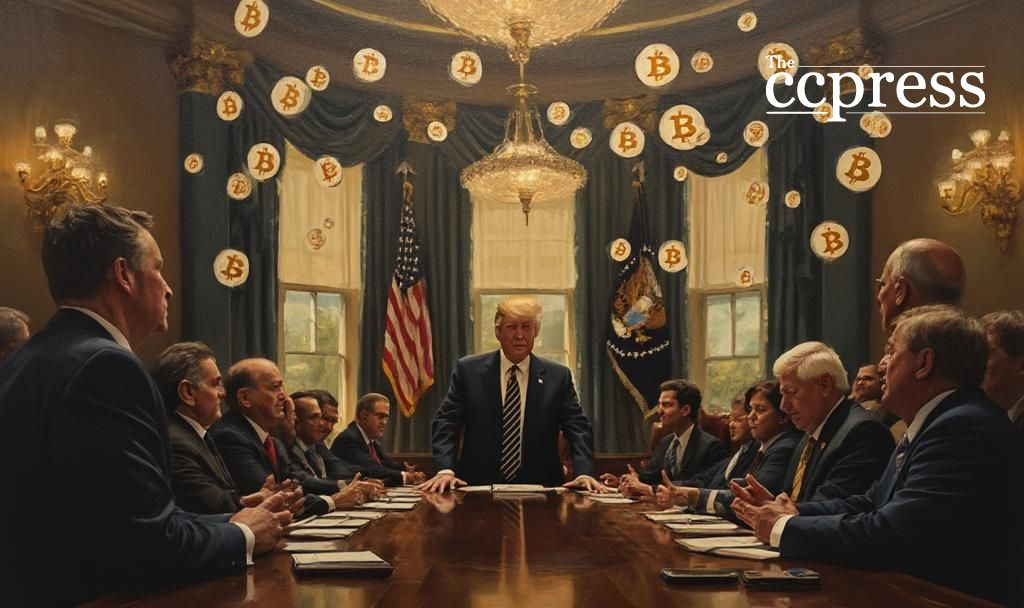- Main event, leadership changes, market impact, financial shifts, or expert insights.
- US House advances crypto legislation.
- Regulatory clarity may boost market participation.
President Donald Trump and the US House of Representatives advanced three key Republican-led cryptocurrency bills after resolving previous obstruction concerns.
Legislative Progress and Challenges
The Republican-controlled US House moved forward with significant cryptocurrency legislation after an initial setback. President Donald Trump assisted by meeting with House hold-outs to gather support.
“I voted against the procedural ‘rule’ for floor debate on the four separate bills because the stablecoin legislation does not reflect the president’s executive order on January 23 that specifically says there should be a ban on central bank digital currency—and because Speaker Mike Johnson would not allow the House to vote on amendments to the legislation,” said Marjorie Taylor Greene, Representative, U.S. House.
The House Speaker faced criticism for not allowing votes on certain amendments. Key measures in the bills include regulating stablecoins, defining the crypto market structure, and limiting central bank digital currency development. The advancement follows extensive political efforts involving President Trump’s intervention and legislative negotiations.
Implications for the Crypto Market
Market analysts see this as an opportunity for increasing institutional participation, providing more compliance certainty. Stablecoins and major DeFi platforms could gain broader recognition and credibility while potentially prompting capital inflows into the US market.
The legislation strategically addresses financial, institutional, and regulatory needs by solidifying USD-pegged tokens’ status within the national framework. This development may position the US as a central player in the global crypto arena.
Future Scenarios
Future scenarios involve regulations impacting financial, technological, and legislative practices within the cryptocurrency industry. Patterns from past regulatory transitions hint at increased stability and market integration, potentially expanding the sector’s economic contributions.
The US House’s advancement emphasizes the importance of these bills, suggesting a pivotal shift in the United States’ approach to digital currencies. Such efforts underscore the broader discussion and significance surrounding the legislation.
| Disclaimer: The content on The CCPress is provided for informational purposes only and should not be considered financial or investment advice. Cryptocurrency investments carry inherent risks. Please consult a qualified financial advisor before making any investment decisions. |
